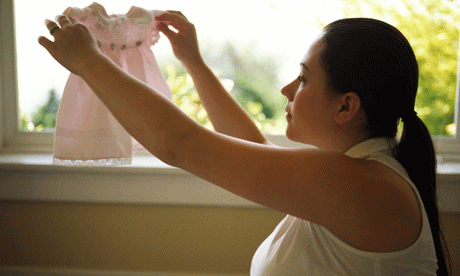
Ministers last night defended their strategy for reducing the number of teenage pregnancies after new figures showed that conception rates among under-16s had risen for the first time since 2002.
The government insisted that its teenage pregnancy programme was still on course, despite data from the Office for National Statistics showing an increase in the number of pregnancies among girls in the 16-18 age group as well as the under-16s.
More than 8,000 girls under 16 became pregnant in 2007, the latest figures estimate. Conceptions per 1,000 girls aged 12 to 15 in England and Wales rose from 7.8 in 2006 to 8.1 in 2007, the figures showed. Rates among girls between the ages of 15 and 17 rose slightly, from 40.9 per 1,000 in 2006 to 41.9 per 1,000 a year later.
The children's minister, Beverley Hughes, admitted yesterday that the latest statistics were "disappointing" but added that she was optimistic that the longer-term trends were positive. She announced a £20.5m package to improve teenagers' access to contraception and to information about the risks of unprotected sex.
Overall rates of teenage pregnancy have fallen by 12.6% among under-18s, and by 12.3% among under-16s since 1998, when the government announced its target of halving teenage pregnancies in England by 2010.
Alan Duncan, the shadow leader of the Commons, described the new figures as "very depressing", saying they showed that the case of Alfie Patten - the teenager who caused a media furore after reports this month that he had fathered a child at the age of 13 with his 15-year-old girlfriend - was not an isolated incident. Duncan said children had to be "taught about right and wrong" and the immense responsibilities of parents. "We are obviously failing our children when they are raising children themselves."
But Harriet Harman, the Commons leader, defended the progress she said Labour had made in tackling teen pregnancy over the past decade. She pointed out that Rutland, in Duncan's constituency, had seen a 7% increase in teen conceptions but that in the borough of Southwark in inner London, where she is an MP, the rate had gone down 13%. She told Duncan in a Commons exchange: "I would suggest you work with all the authorities in your constituency to help back up the strategy you clearly support."
Campaigners have blamed the government for failing to ensure sex education programmes are systematically put in place around the UK. While some areas which invested heavily in prevention programmes have been seeing big falls in teenage conceptions, others have been falling behind.
A spokeswoman for the sexual health group Marie Stopes International said that while conception rates rose nationally in 2007, the longer term trend was downward. But Gill Frances, chair of the Teenage Pregnancy Independent Advisory Group, said local implementation of the government's strategy had been patchy, a situation exacerbated by ministers' failure to monitor carefully how the strategy was implemented.
Areas that had systematically carried out the strategy had seen "fantastic" results, Frances suggested. One of the most deprived boroughs in London, Hackney, had seen "significant" reductions in the numbers of teenagers getting pregnant - down by more than a quarter at 27.7%. Likewise Oldham, in Greater Manchester, had seen big improvements by adopting a "systematic and clear" approach. "What is needed is both a local and a universal approach to the issue, including better sex education."
A combination of careful planning, a "strong local champion", a communications strategy directing parents and young people to effective contraception services, and robust sex education in schools, would be the common-sense way to turn things around, she said.
In areas that were failing to make substantial progress in cutting teenage pregnancies, part of the problem was that either the local council or the NHS was using money allocated for sexual health for other health services, Frances added. "Its important for government to monitor, to see what every primary care trust is doing with the money."
Jules Hillier, of the sexual advice organisation Brook, said the figures were disappointing but not surprising. She added that it was essential that funding found its way to local areas where the need was greatest. "This is simply not happening consistently."
In response to the figures, ministers called for a redoubling of efforts by local health services to ensure that the underlying trend of falling teenage pregnancies was maintained. A £7m "contraceptive choices" media campaign is to be launched to raise awareness, while £10m will go to local health services to ensure that contraception is available "in the right places at the right time".

